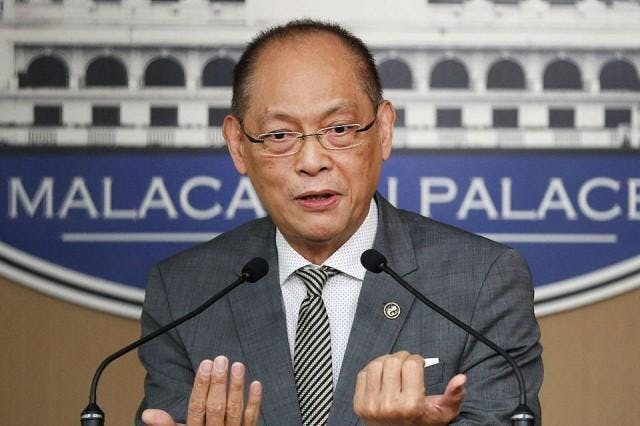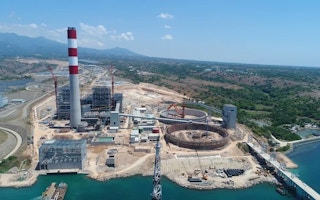Philippine banks continue to finance coal despite making pledges to stop funding coal-power projects because reducing dependency on the fossil fuel cannot be done immediately, according to Bangko Sentral ng Pilipinas (BSP) governor Benjamin Diokno.
To continue reading, subscribe to Eco‑Business.
There's something for everyone. We offer a range of subscription plans.
- Access our stories and receive our Insights Weekly newsletter with the free EB Member plan.
- Unlock unlimited access to our content and archive with EB Circle.
- Publish your content with EB Premium.
“On the matter of shifting to renewable energy, we cannot do that overnight,” Diokno said in a virtual forum organised by the Asian Development Bank (ADB) on Friday. He was asked if the central bank can push local lenders to produce clearer coal divestment policies after they have vowed to stop financing coal. Most local banks continue to underwrite or sell bonds issued by coal developers, despite climate pledges.
AboitizPower, the country’s second-largest coal developer, issued bonds last year to refinance or redeem bonds whose net proceeds were used to finance two GNPower coal plants in Bataan in the Luzon island group, according to a report released early this month by anti-coal coalition Withdraw from coal.
BDO Capital & Investment Corporation, the investment arm of the Philippines’ largest bank, BDO Unibank Inc, is the joint issue manager and bookrunner of AboitizPower. The bank has committed to undertake the sale and distribution of almost US$64.5 million worth of the coal developer’s bonds to third party investors, the report stated.
Rizal Commercial Banking Corp (RCBC), the country’s eighth biggest lender, committed to sell about US$29 million worth of bonds for Aboitiz.
In 2020, RCBC was the first Filipino bank to declare it will stop funding new coal projects, while BDO said in December that it will stop financing coal “as a rule of thumb”.
An energy transition mechanism before an outright ban on coal
Before a complete withdrawal from coal financing can happen, Diokno highlighted how mechanisms to transition to clean energy needed to be in place, like the ADB-led fund that will buy coal power plants in order to shut them down early, replacing them with renewable energy alternatives.
Called the Energy Transition Mechanism (ETM), it will be financed through a blend of equity, debt and concessional finance from funding sources including governments, philanthropy and private investors, to access low-interest loans to purchase the utilities.

Bangko Sentral ng Pilipinas governor Benjamin Diokno. Image: Krizjohn Rosales
In April, RCBC announced its participation in a financing deal adopting the same principles as the ETM, which aims for AC Energy Corp’s South Luzon Thermal Energy Corp power plant in Calaca, Batangas to be decommissioned early and proceeds of the equity redemption to be reinvested in renewable energy projects.
The BSP governor noted how the central bank issued resolutions on sustainable finance over the past two years, such as requiring financial institutions to disclose their exposure to environmental and social risks in a policy framework.
Although the BSP does not explicitly ask local banks to quit coal, it encourages them to adopt “green strategies” by rewarding lending to undertakings that are environmentally sustainable while penalising those that are not.
BSP’s sustainability framework gives banks a transition period of three years to fully comply with the provisions of the circular. They must develop their transition plan for approval six months from the issuance of the circular.
“We have provided a framework to monitor performance. We expect that BSP- supervised financial institutions to be on board and implement our resolution by next year [2023],” said Diokno.
Apart from the BSP, some of the Philippines’ oldest and largest conglomerates said last year that they are still unable to scrap ther fossil fuels investments immediately.
TG Limcaoco, president of Ayala-led Bank of the Philippine Islands, said that the bank’s loan book is split evenly between thermal and renewable investments, but he announced in August that the bank will halve the amount of its outstanding coal loans by the end of 2026, and attain zero coal exposure by 2033.
BPI is the second biggest financier of coal in the country, with 62 per cent of its energy portfolio comprising of coal. In last year’s Global Coal Exit List (GCEL), figures compiled by German non-profit Urgewald, covering the period between October 2018-October 2020, state that BPI is providing US$444.82 million in loans and underwriting for coal projects.
Want more Philippines ESG and sustainability news and views? Subscribe to our Eco-Business Philippines newsletter here.










